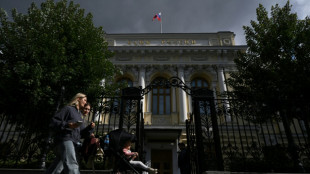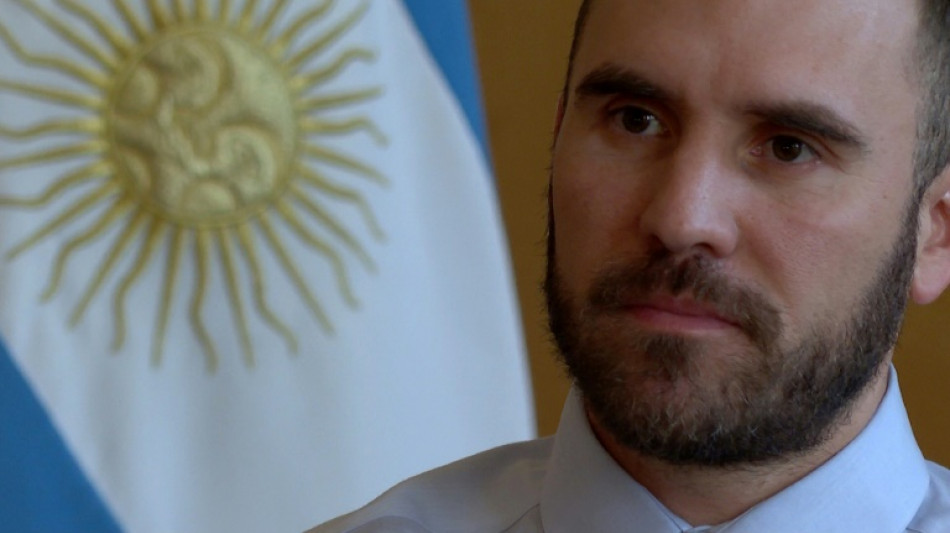
-
 Kenya's Chebet wins 10,000m gold to set up tilt at world double
Kenya's Chebet wins 10,000m gold to set up tilt at world double
-
Lyles, Thompson and Tebogo cruise through world 100m heats

-
 Vuelta final stage shortened amid protest fears
Vuelta final stage shortened amid protest fears
-
Collignon stuns De Minaur as Belgium take Davis Cup lead over Australia

-
 Nepal returns to calm as first woman PM takes charge, visits wounded
Nepal returns to calm as first woman PM takes charge, visits wounded
-
Olympic champion Alfred eases through 100m heats at Tokyo worlds

-
 Winning coach Erasmus 'emotional' at death of former Springboks
Winning coach Erasmus 'emotional' at death of former Springboks
-
Barca's Flick blasts Spain over Yamal injury issue

-
 Rampant Springboks inflict record 43-10 defeat to humble All Blacks
Rampant Springboks inflict record 43-10 defeat to humble All Blacks
-
Italy's Bezzecchi claims San Marino MotoGP pole as Marquez brothers denied

-
 Rampant South Africa inflict record 43-10 defeat on All Blacks
Rampant South Africa inflict record 43-10 defeat on All Blacks
-
Collignon stuns De Minaur as Belgium take 2-0 Davis Cup lead over Australia

-
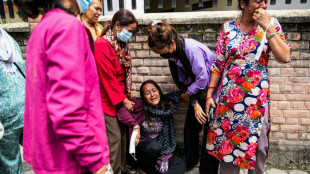 Mourning Nepalis hope protest deaths will bring change
Mourning Nepalis hope protest deaths will bring change
-
Carreras boots Argentina to nervy 28-26 win over Australia

-
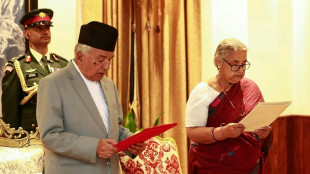 Nepal returns to calm as first woman PM takes charge
Nepal returns to calm as first woman PM takes charge
-
How mowing less lets flowers bloom along Austria's 'Green Belt'

-
 Too hot to study, say Italian teachers as school (finally) resumes
Too hot to study, say Italian teachers as school (finally) resumes
-
Alvarez, Crawford both scale 167.5 pounds for blockbuster bout

-
 Tokyo fans savour athletics worlds four years after Olympic lockout
Tokyo fans savour athletics worlds four years after Olympic lockout
-
Akram tells Pakistan, India to forget noise and 'enjoy' Asia Cup clash

-
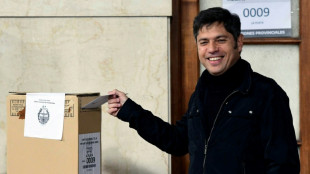 Kicillof, the Argentine governor on a mission to stop Milei
Kicillof, the Argentine governor on a mission to stop Milei
-
Something to get your teeth into: 'Jaws' exhibit marks 50 years

-
 Germany, France, Argentina, Austria on brink of Davis Cup finals
Germany, France, Argentina, Austria on brink of Davis Cup finals
-
War with Russia weighs heavily on Ukrainian medal hope Doroshchuk

-
 Suspect in Charlie Kirk killing caught, widow vows to carry on fight
Suspect in Charlie Kirk killing caught, widow vows to carry on fight
-
Dunfee and Perez claim opening world golds in Tokyo

-
 Ben Griffin leads PGA Procore Championship in Ryder Cup tune-up
Ben Griffin leads PGA Procore Championship in Ryder Cup tune-up
-
'We're more than our pain': Miss Palestine to compete on global stage

-
 Ingebrigtsen seeks elusive 1500m world gold after injury-plagued season
Ingebrigtsen seeks elusive 1500m world gold after injury-plagued season
-
Thailand's Chanettee leads by two at LPGA Queen City event

-
 Dolphins' Hill says focus is on football amid domestic violence allegations
Dolphins' Hill says focus is on football amid domestic violence allegations
-
Nigerian chef aims for rice hotpot record
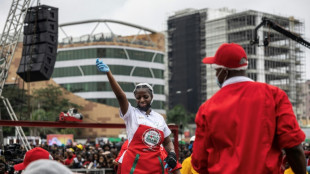
-
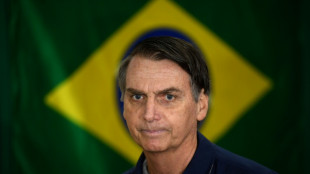 What next for Brazil after Bolsonaro's conviction?
What next for Brazil after Bolsonaro's conviction?
-
Fitch downgrades France's credit rating in new debt battle blow
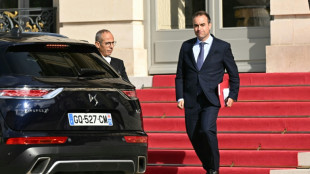
-
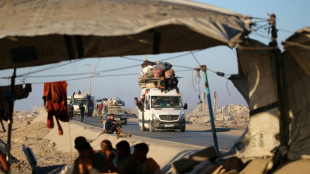 Fifty reported dead in Gaza as Israel steps up attacks on main city
Fifty reported dead in Gaza as Israel steps up attacks on main city
-
Greenwood among scorers as Marseille cruise to four-goal victory

-
 Rodgers calls out 'cowardly' leak amid Celtic civil war
Rodgers calls out 'cowardly' leak amid Celtic civil war
-
Frenchman Fourmaux grabs Chile lead as Tanak breaks down

-
 Germany, France, Argentina and Austria on brink of Davis Cup finals
Germany, France, Argentina and Austria on brink of Davis Cup finals
-
New coach sees nine-man Leverkusen beat Frankfurt

-
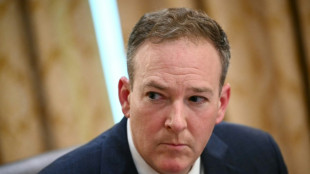 US moves to scrap emissions reporting by polluters
US moves to scrap emissions reporting by polluters
-
Matsuyama leads Ryder Cup trio at PGA Championship

-
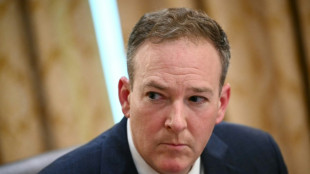 US to stop collecting emissions data from polluters
US to stop collecting emissions data from polluters
-
Pope Leo thanks Lampedusans for welcoming migrants
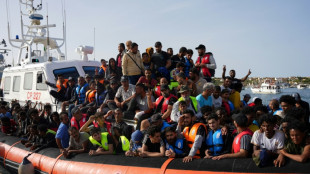
-
 Moscow says Ukraine peace talks frozen as NATO bolsters defences
Moscow says Ukraine peace talks frozen as NATO bolsters defences
-
Salt's rapid ton powers England to record 304-2 against South Africa in 2nd T20

-
 Noah Lyles: from timid school student to track's showman
Noah Lyles: from timid school student to track's showman
-
Boeing defense workers reject deal to end strike

-
 Germany, Argentina close in on Davis Cup finals
Germany, Argentina close in on Davis Cup finals
-
Alvarez, Crawford both tip scales at 167.5 pounds for title bout


IMF risks losing legitimacy over Argentina loan: minister
Argentina's economy minister, renegotiating a massive loan with the International Monetary Fund, warned the lender risked losing credibility if it "pushes" the country "into a destabilizing situation."
Argentina has received $44 billion of a $57 billion loan the lender itself said last month had failed to achieve its objectives of restoring confidence in the country's fiscal viability and fostering economic growth.
Latin America's third-largest economy has been in recession since 2018 and is seeking to renegotiate its down payment plan, with amounts of $19 billion and $20 billion due in 2022 and 2023.
The country registered GDP growth of 10 percent in 2021 after a drop of 9.9 percent the previous year largely due to the coronavirus pandemic.
Guzman, in an interview with AFP, said the repayment calendar was "unsustainable" for a country battling a poverty rate of some 40 percent and one of the highest inflation rates in the world at 50 percent.
The government of center-left President Alberto Fernandez, who refused to accept the last $13 billion of the IMF's biggest-ever loan arranged in 2018 under his conservative predecessor Mauricio Macri, is seeking a deal that will reduce Argentina's fiscal deficit through economic growth, not reduced public spending.
Here is what the minister said:
Q: How do you see 2022 unfolding? Is there a risk of a default?
A: Argentina has a very high trade surplus, which is at the highest levels we have achieved. It was over $15 billion in 2021. What is the balance of payments problem facing Argentina in 2022? It is precisely the debt with the IMF. And that is why it is important to refinance it.
It is important for the country and also for the IMF.
If the IMF pushes Argentina into a destabilizing situation, it will also have less legitimacy in the future when other countries require multilateralism in order to solve their problems with the international community.
If we want to protect each other and protect the workings of multilateralism, it is important to agree on something that is credible. And credible means implementable.
We have a set of economic and social objectives, and of course we want to deliver on our commitments, but we need time. We need to be able to refinance these debts.
We need not, for that time, to be burdened with a conditionality that stops recovery and inhibits Argentina's capacity for development in the medium and long term.
Q: Are you expecting support from the United States as the IMF's biggest shareholder? What do you make of the call by Democratic lawmakers to US Treasury Secretary Janet Yellen to back a review of IMF surcharges on larger, outstanding loans, especially at a time that countries need additional resources to fight the pandemic?
A: That was an important request to the Secretary of the Treasury of the United States to support in the IMF board a review of this policy, which harms countries in crisis that have what is called "exceptional access to the International Monetary Fund."
They are charged more when the situation is worse. That... does not help to fulfil the Fund's mission of ensuring global financial stability. Countries with these interest surcharges lose resources with which to carry out the investments needed to improve repayment capacity.
Q: Where does the disagreement lie?
A: There is nearly agreement on where to converge; what is the primary fiscal outcome (before the payment of interest).
The disagreement lies in the speed (of repayment) and this has to do with differing objectives.
In 2021, with an economy growing at 10 percent, the primary fiscal deficit fell by 3.5 percent of GDP. The fiscal deficit in 2021 was between 2.9 percent and 3.0 percent of GDP -- the figure will be known on January 20. It is a strong decline. Good fiscal consolidation is taking place.
What the IMF has put forward is that there must be faster fiscal consolidation.
But there are two problems: the first is that how they propose it be done would halt economic recovery in the short term. The second is that... it would focus on a smaller expansion of investment in public infrastructure. For us this is critical, because that investment is what Argentina needs most, from a productive point of view. That is where the tension lies.
Q: You have made reference to the difference between a perfect agreement and an acceptable one. Are you getting closer to an acceptable deal?
A: There is no perfect agreement...
What we are looking for is to move forward rather than backward. I'd say we are a little better than we were a week ago, but there is a long road ahead. The frequency (of contacts with the IMF) is not only daily, but several times a day.
O.Lorenz--BTB


